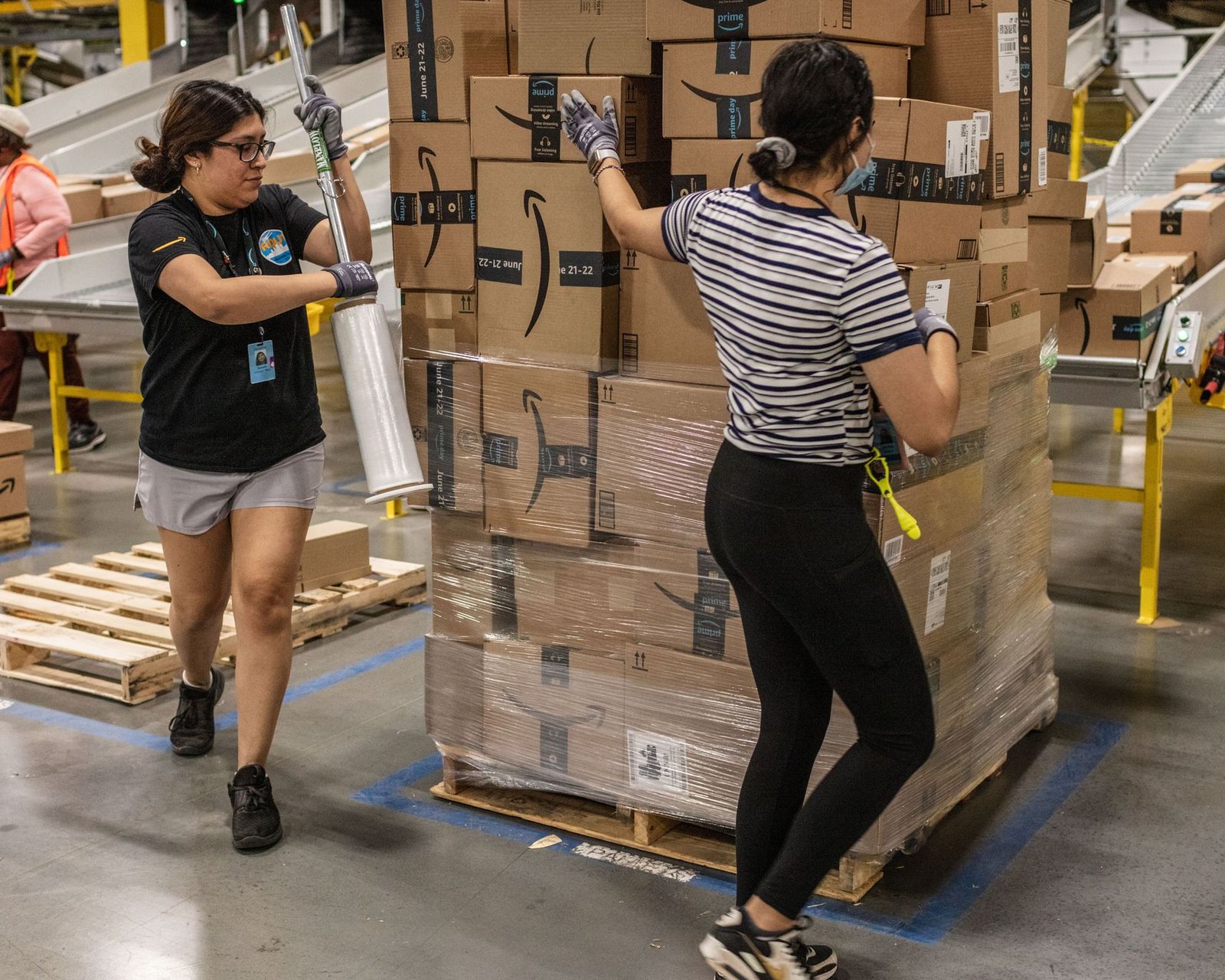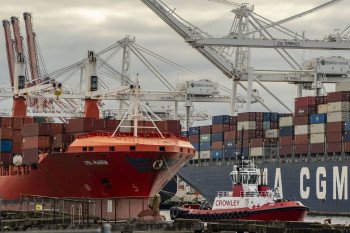The hiring frenzy in logistics driven by pandemic-fueled shopping appears to be cooling off.
Operators of warehouses, trucking fleets and other freight businesses say they are paring their payroll growth as the supply-chain disruptions that led to tens of thousands of new jobs recede. Several freight executives say they expect to reduce staff by attrition, though some suggest layoffs could come as their companies cut costs.
“We got ahead of ourselves in terms of head count,” said Bob Biesterfeld, chief executive of C.H. Robinson Worldwide Inc., the largest freight broker in the U.S. by revenue. “We certainly did not expect that the market was going to come down as rapidly as it did.”
“As supply chains ease, it’ll allow us and afford us the opportunity to make some difficult personnel decisions there in order to take cost out of the model,” Mr. Biesterfeld said, speaking on an earnings conference call Wednesday.
Warehousing and storage companies, which added more than 400,000 jobs in two years through the end of 2021, dropped 20,000 jobs from September to October, according to the Bureau of Labor Statistics seasonally-adjusted preliminary monthly employment report released Friday.
It was the fourth straight monthly pullback in payrolls and the largest since the sector lost 75,000 jobs in April 2020 as pandemic lockdowns took hold.
“We’ve had over two years of exceptional growth in supply chain and demand for goods,” said Cathy Roberson, president of research and consulting firm Logistics Trends & Insights LLC. “Companies had to scale up as best as they could by hiring workers to help with that increase in demand and such, and now that things are beginning to ease off, normalize, there’s not the need for as many workers.”
Employment in the warehousing and storage sector has fallen by nearly 50,000 jobs since June, according to the BLS data.
Nick Bunker, economic research director for North America at job-search marketplace Indeed.com, said demand for warehouse workers has ebbed as consumers have turned from spending on goods to services.
“This is part of a broader shift in the economy, which obviously has consequences for transportation and logistics as they are the sectors that are moving those goods to businesses and the ultimate end consumer,” Mr. Bunker said.
Amazon.com Inc., which had doubled the size of its fulfillment network over 24 months in the pandemic, is now scaling back plans for warehouse expansion this year, and last month froze hiring in its retail division. The e-commerce giant said it would pause corporate hiring for months amid signs of a broader economic slowdown.
The hiring restraint goes beyond the U.S., with big international freight forwarders including Switzerland-based Kuehne + Nagel International AG and Denmark’s DSV A/S saying they are cutting staff in some markets through attrition.
“We will not replace and hire new people,” said Kuehne + Nagel Chief Executive Stefan Paul on an Oct. 25 conference call, “in order to reduce manpower cost.”
Trucking companies defied the logistics job pullback in October, adding 13,200 positions, reversing a decline of 9,500 jobs the previous month.
Several trucking executives have said they expect a muted peak season in the coming weeks and plan to adjust their operations as demand declines.
Fort Smith, Ark.-based ArcBest Corp. , parent of less-than-truckload carrier ABF Freight System, hired more than 1,000 people over the past year. Chief Executive Judy McReynolds said the company would now look to get “greater efficiency” from the people it already employs.
Old Dominion Freight Line Inc.’s head count was down by about 300 employees, roughly 1% of the less-than-truckload carrier’s workforce, in the third quarter compared with the second as the company let attrition whittle back its payroll.
“We aren’t really hiring other than filling vacancies and whatnot,” Chief Executive Greg Gantt said on an Oct. 26 earnings call.
Write to Liz Young at liz.young@wsj.com
Copyright ©2022 Dow Jones & Company, Inc. All Rights Reserved. 87990cbe856818d5eddac44c7b1cdeb8




